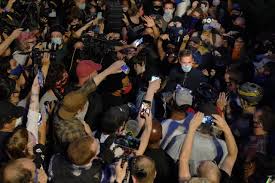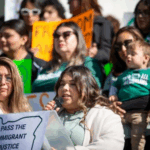Portland, once known for its vibrant culture and progressive values, is now facing mounting criticism over its handling of crime, homelessness, and public safety. Despite local leaders’ objections to how outsiders—particularly former President Donald Trump—describe their city, recent reports paint a grim picture of a place struggling to maintain basic order and functionality.
Surge in Copper Wire Thefts
One of the most alarming developments is the spike in copper wire thefts across Portland. According to police, the city has suffered over $2 million in losses and damages during just the past six months. Internet service provider CenturyLink alone has reported at least 98 large-scale copper wire thefts, crippling communication lines and disrupting public services.
Detectives describe the thefts as increasingly bold and frequent, saying that phone lines are being “cut and split apart” nearly every other day. These crimes not only cause financial damage but also impact critical infrastructure, leaving residents without reliable phone and internet access for days at a time.
Also Read
Homelessness Reaches Crisis Levels
At the same time, homelessness in Portland’s Multnomah County has risen 67% over the past two years, bringing the total to more than 10,500 people living without stable housing. Despite spending $724 million on homeless programs in 2024, including half a billion dollars from Multnomah County alone, the crisis continues to grow.
Critics argue that the city’s approach focuses too heavily on funding temporary programs rather than addressing root causes such as addiction, mental health, and affordable housing shortages. The lack of measurable improvement has led many to question where the money is going—and whether city officials have any effective long-term plan.
A Weak Response to Lawlessness
Compounding the city’s challenges is its strained relationship with federal authorities. Portland’s leaders have repeatedly resisted outside intervention, including efforts from federal law enforcement to maintain order during episodes of civil unrest.
During protests and riots, Portland police were barred from assisting federal agents tasked with protecting government buildings. The city attorney was even directed to pursue legal action against the federal government over crowd-control measures. Meanwhile, Police Chief statements downplaying the unrest—calling it confined to “just one city block”—have been met with disbelief by residents and business owners who experience the fallout daily.
Mayor Keith Wilson has criticized Immigration and Customs Enforcement (ICE) for boarding up its Portland facility, though federal officials say such measures are necessary due to frequent vandalism and attacks that local police have failed to prevent.
Federal Government Steps In
In response to Portland’s inability—or unwillingness—to curb escalating disorder, the Department of Homeland Security (DHS) has taken action. DHS recently implemented a new rule banning masks on or near federal property, a measure originally scheduled to begin in 2026 but fast-tracked due to ongoing unrest in the city.
The accelerated enforcement underscores federal frustration with Portland’s lax approach to public safety. It also reflects the broader perception that city leaders have lost control of critical parts of their community.
Population Decline and Public Disillusionment
Perhaps the most telling indicator of Portland’s decline is its shrinking population. Since 2020, roughly 17,000 residents have left the city, citing rising crime, deteriorating public spaces, and waning trust in local government. Businesses, too, have fled downtown, leaving behind empty storefronts and declining tax revenues.
Residents increasingly describe Portland as a city adrift—where idealistic politics have replaced practical governance, and where leaders appear more interested in symbolic gestures than solving urgent problems.
A City Losing Its Way
Portland’s identity crisis has deepened as its leaders struggle to balance compassion with accountability. While many agree the city’s progressive values once fueled innovation and inclusivity, critics say those same ideals have now become obstacles to decisive leadership.
The combination of rampant theft, unchecked homelessness, weakened law enforcement, and declining public trust paints a sobering picture. Portland’s problems are not merely political—they are structural, affecting daily life for thousands of residents.
Conclusion
Portland’s decline did not happen overnight, but its persistence points to a fundamental failure of leadership. The city’s refusal to confront hard truths—about crime, homelessness, and the limits of ideological governance—has left it vulnerable and unstable.
Until Portland’s leaders move beyond rhetoric and take tangible action to restore safety, accountability, and trust, critics will continue to call it what it has become: a city that is no longer serious about being a city at all.












